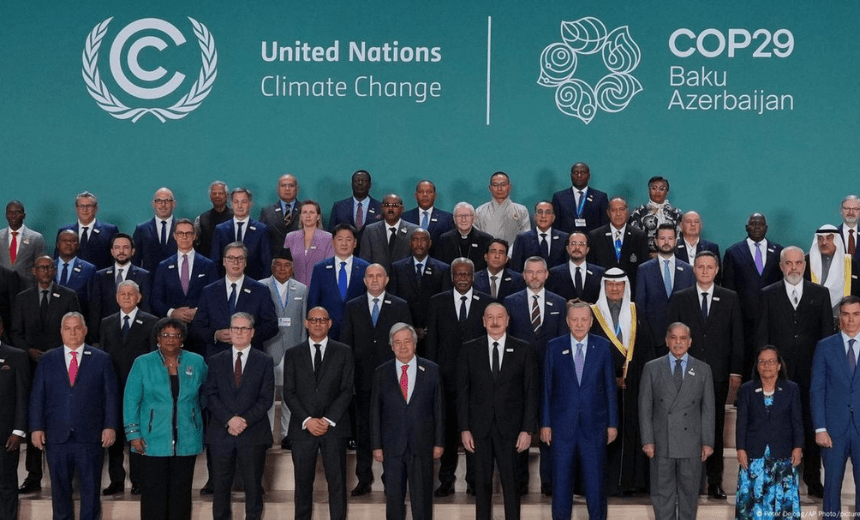November, 2024, World leaders gathered in Baku, Azerbaijan for the 29th Conference of Parties on Climate Change COP29, to discuss the urgent need for action to halt the escalating global phenomenon.
However, for Nigeria, Africa, and other developing nations, the outcome appears to be a tale of another unmet promises of climate financing, a repetition of past commitments that have failed to materialise.
Our Environment Correspondent, in this report reviews COP29 outcomes for countries in the Global South and tracks the World’s Progress for Clean Energy.
After two weeks of intense negotiations on carbon reduction targets, financing climate adaptation, and reducing greenhouse gas emissions, many developing countries, including Nigeria, are still left grappling with the same concerns they’ve raised for years….financial support, technology transfer, and the global commitment to curb climate crisis.
Their worries stem from the fact that promises made during previous COP meetings including a $100 billion annual climate finance for developing countries,pledged over a decade ago, remain largely unfulfilled.
Though Africa contributes less than 4% of global carbon emissions, countries particularly those in the Sahel region are experiencing unprecedented flooding, drought, desertification and other changing weather conditions threatening agriculture and livelihoods.
In Nigeria for instance, several states including Adamawa, Akwa ibom, Bauchi, Delta and
Borno witnessed heavy flooding in 2024. Many communities and farmlands were submerged threatening food security. Thousands of residents were also displaced.
Experts say Nigeria will require about 6 mega dams and about 3% of its GDP to overcome the perennial flood disasters.
MUST READ: Climate Change, Clean Energy And The Politics Affecting Developing Nations
Even the Funding which runs into billions of naira given to every state for disaster preparedness earlier in the year could not address the enormous challenge when the rains came pouring forcing President Bola Tinubu to set up a Technical committee to evaluate the integrity of
dams in the country and profer solutions to avert a recurrence.
Like Nigeria, other countries in the global south this year also experienced unprecedented climate catastrophe. Yet, financing mechanisms to help the nations adapt to the changes remain inadequate, and promises made at COP28 and earlier summits continue to be delayed.
While some progress have been made on global carbon markets, the continued emphasis on “net-zero” targets has drawn concern over the ability of developing nations to meet the targets which experts consider too ambitious and unrealistic.
For Nigeria and other emerging economies, the costs of transitioning to green energy infrastructure are astronomical, and without the promised financial support, its realisation remains uncertain.
While the conference saw some significant strides in pledging financial support by the global north countries and reaffirming commitments to the Paris Agreement, the promises made at COP29 seemed little more than a repetition of past commitments that have failed to materialise.
Nations struggling with the devastating effects of climate change, like Nigeria want the global north countries to ensure that commitments are not just promises but turned into concrete actions for the overall development of the African continent and indeed, the world.








